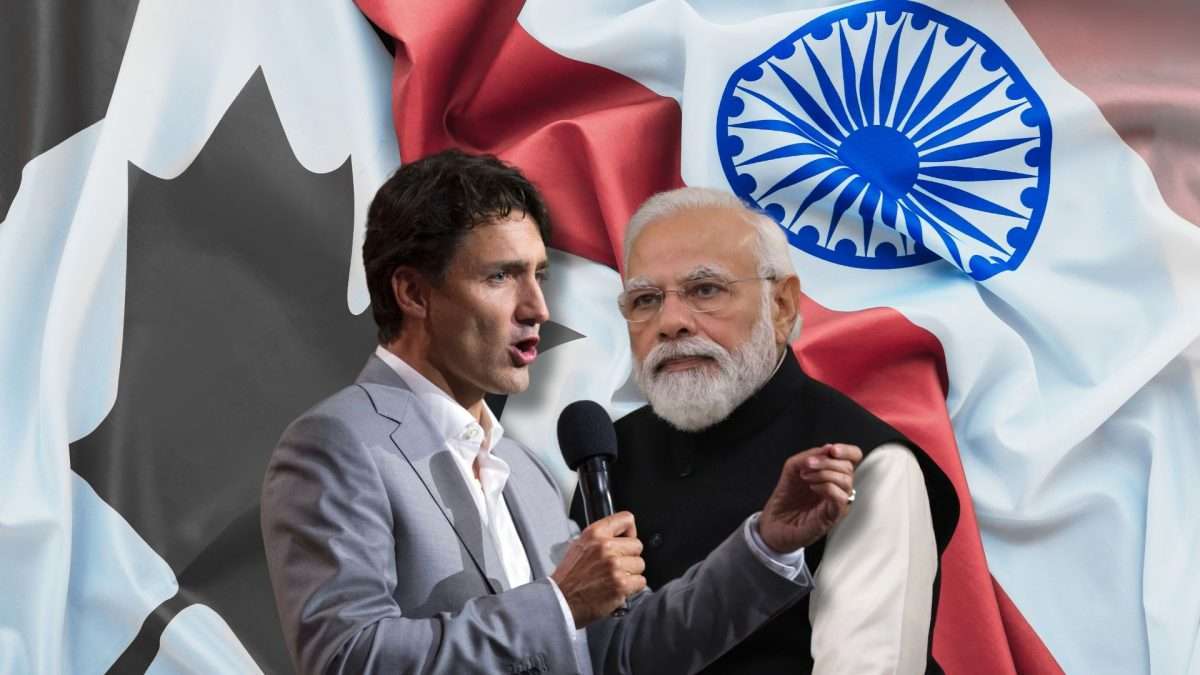Canada and India have expelled each other’s top diplomats as bilateral relations deteriorate due to New Delhi’s overseas assassination campaign.
The escalatory moves put the United States in a difficult position of having to choose between neighbor and NATO ally Canada and India, an important partner in countering China in the Indian Ocean region.
The Backstory
The Canada-India tensions stem from the June 18, 2023, assassination of Hardeep Singh Nijjar, a Canadian Sikh advocate for the Khalistan movement, which seeks a separate homeland for the Sikh religious community carved out from part of present-day India.
For a deep dive into India’s global assassination campaign, listen to my podcast with investigative journalist Murtaza Hussain:
Last September, Canadian Prime Minister Justin Trudeau publicly accused “agents of India” of being behind the murder plot. Nijjar was shot 34 times in a parking lot in British Columbia by a hit team. Canadian authorities subsequently arrested four Indian nationals they allege were involved in the murder.
On Monday, India’s Ministry of External Affairs said that it had received notification from Canada indicating that the Indian ambassador to Canada and other diplomats are “persons of interest” in an investigation in the country.
The MEA statement angrily described the move as “preposterous” and dismissed it as part of Trudeau’s “pander[ing] to” Canadian Sikhs who, it alleges, hold an “anti-India separatist agenda.”
The Indian government statement, it appears, was aimed at preempting public notice that Canada had, in fact, expelled top Indian diplomats, including Sanjay Kumar Verma. The Washington Post reports that Canadian investigative authorities have uncovered an even “broader campaign of violence against Indian dissidents” in Canada directed by senior Indian officials.
An unnamed senior Canadian official told the Post, “We know they are involved in the Nijjar killing, in other murders and in ongoing violence — actual violence — in Canada.” The Canadian investigation reveals “Indian government involvement in home invasions, drive-by shootings, arson and at least one additional killing.”
India’s global assassination campaign has extended to multiple countries, including the United States. In the West, it has involved using organized crime networks.
Last November, the U.S. Department of Justice (DOJ) charged Nikhil Gupta, an Indian national, with attempting to orchestrate the Indian government-directed assassination of Gurpatwant Singh Pannun, another Sikh activist and a U.S. citizen, on U.S. soil. Gupta has since been extradited to the U.S.
According to the Washington Post, the Central Intelligence Agency assessed that the plot was approved by Samant Goel, then the head of the Research and Analysis Wing (RAW) — India’s top external spy agency.
The U.S. Is Making a Dangerous Bet on India
Some in the DOJ sought to charge Goel’s handler, Vikram Yadav, an officer with India’s RAW spy agency, but the White House played a role in squashing that idea.
The U.S. has a clear interest in deterring India from engaging in extrajudicial killings on its territory and those of its allies. Indian Prime Minister Narendra Modi, however, is channeling Russian President Vladimir Putin by leveraging reticence in the West to alienate his country, due to its perceived geopolitical importance, and stand with the smaller Canada.
It has grown audacious, not only violating the sovereignty of a smaller country that also happens to be a U.S. treaty ally and steadfast partner, but also attempting to do the same on U.S. soil with the failed plot against Pannun.
India sees the West as in decline, paving the way for a multipolar world order. It views itself as an emerging power center.
Ironically, the deterioration in relations between Ottawa and New Delhi comes as Indian migrants surge into Canada, which is also used as an illegal entry point into the U.S. Encounters at the U.S.-Canada border by the U.S. Customs and Border Patrol are up by nearly eight-fold since 2021, with Indian nationals comprising the largest group.
This article has been updated to reflect new reporting on Canada’s expelling of Indian diplomats.
Arif Rafiq is the editor of Globely News. Rafiq has contributed commentary and analysis on global issues for publications such as Foreign Affairs, Foreign Policy, the New Republic, the New York Times, and POLITICO Magazine.
He has appeared on numerous broadcast outlets, including Al Jazeera English, the BBC World Service, CNN International, and National Public Radio.



